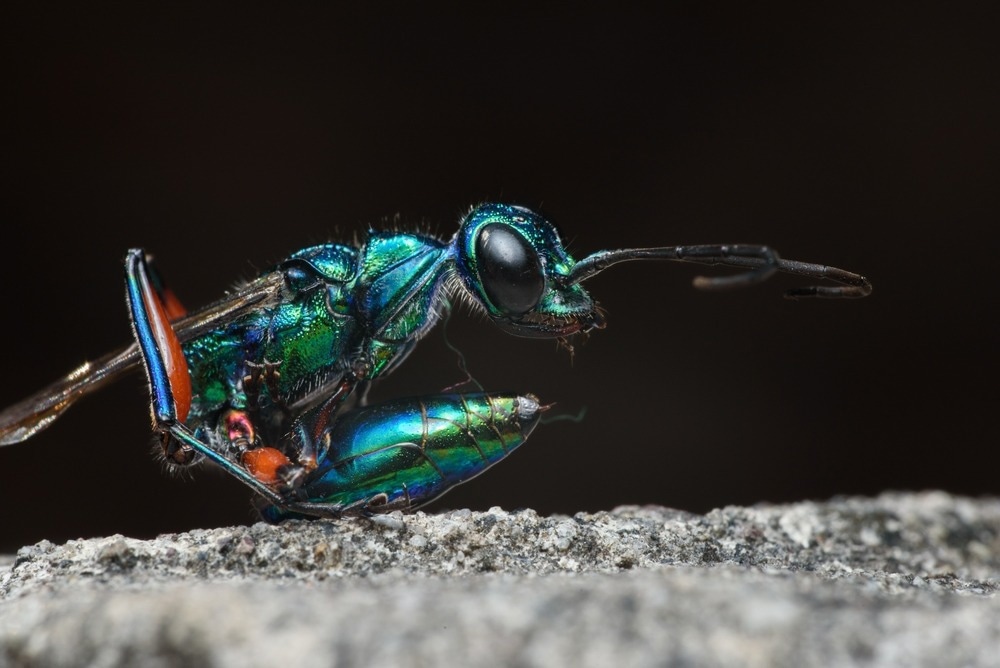Reviewed by Danielle Ellis, B.Sc.Nov 10 2023
Parents of newborns might sense a rapid aging effect during the early months of sleepless nights. Currently, researchers at the University of Leicester are exploring the intriguing possibility that the key to a long and healthy life lies in a restful night's sleep and human DNA.

Image Credit: RWK007/Shutterstock.com
Funded with £164,587 from the Biotechnology and Biological Sciences Research Council (BBSRC), a new project at Leicester aims to establish an insect model to examine the impact of sleep disturbance on aging. The research will also investigate the potential reversibility of these effects by studying how it influence chemical modifications in human DNA.
Older individuals tend to experience reduced sleep duration, more frequent awakenings with intermittent returns to sleep, and diminished time spent in deep sleep or dreaming compared to their younger counterparts. Simultaneously, various studies indicate a connection between disturbed sleep and increased mortality among older adults.
Intriguingly, even a single night of disrupted sleep can enhance gene expression in pathways associated with the aging process.
Despite these observations, the precise molecular mechanisms linking alterations in sleep patterns and the aging process remain largely unclear. One of the most distinct molecular indicators of aging is DNA methylation, involving chemical marks attached to DNA that undergo changes throughout an animal's life and closely align with chronological age.
Under the leadership of Professor Eamonn Mallon, the team in the Department of Genetics and Genome Biology at Leicester has demonstrated that a DNA methylation-based “epigenetic clock” can accurately forecast the progression of aging in the jewel wasp (Nasonia vitripennis). This breakthrough positions these wasps as an ideal insect model for investigating whether alterations in DNA methylation play a role in the aging process regulated by sleep.
Biological aging encompasses not only lifespan but also quality of life and activity, referred to as healthspan. Professor Mallon's team, in collaboration with behavioral geneticists Dr Ko-Fan Chen from the University of Leicester and Dr Giorgio Gilestro from Imperial College London, will employ the jewel wasp as a model organism.
The aim is to investigate the repercussions of sleep deprivation on both lifespan and healthspan, as well as its impact on the epigenetic clock.
Similar to humans, the jewel wasp primarily sleeps during the night. In the upcoming experiments, scientists will intentionally keep these wasps awake at night to observe the impact on their lifespan, healthspan, and epigenetic clock. Should there be noticeable effects, it could imply a direct connection between sleep patterns and the aging process, potentially indicating that epigenetics contributes to the biological aging process in living organisms.
We will be seeing how active the wasps are. As they age, you would expect them to be less active, a measure of healthspan, and with sleep disturbance you would expect to see this happen quicker. If it does, then the next step would be to see if this is reversible, with the ultimate aim being could we help people get a better night sleep as they age and maybe even live longer.”
Eamonn Mallon, Professor, Department of Genetics and Genome Biology, University of Leicester
Professor Mallon adds, “Epigenetic clocks are also a pretty good measure of age, but what people aren't 100% sure of is whether epigenetic age is causative of aging or just an effect of aging - a bit like molecular ‘wrinkles’.”
The aging process is intricately complex, shaped by numerous environmental and genetic factors that can be challenging to study, especially in humans. Previous research has predominantly relied on simple model invertebrate organisms, notably fruit flies and nematodes.
These models, chosen for their shorter lifespans enabling observation of aging effects on compressed timescales, lack DNA methylation—a crucial element of epigenetics influencing human aging.
In contrast, the jewel wasp, with its typical three-week lifespan and a functional methylation system, emerges as an ideal system for investigating this specific aspect of the aging process.
Our lab was the first to actually show that this process exists in insects. There are a lot of interventions out there aimed at tackling aging, but the evidence for most of them is very slight. The wasp could really become a kind of early check – basically, a tiny version of us.”
Eamonn Mallon, Professor, Department of Genetics and Genome Biology, University of Leicester